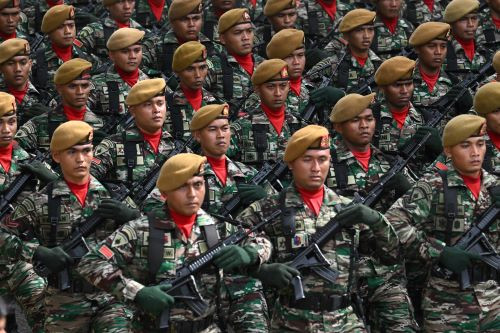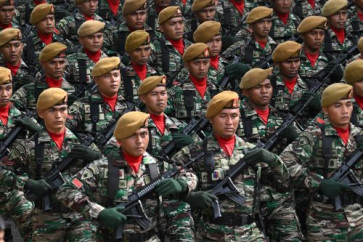Popular Reads
Top Results
Can't find what you're looking for?
View all search resultsPopular Reads
Top Results
Can't find what you're looking for?
View all search resultsNational security: The key to success for the next government
Indonesia's next government must consider the nonmilitary aspects of national security while reprioritizing our national security interests to address the current strategic security challenges in 2024 and beyond.
Change text size
Gift Premium Articles
to Anyone
E
very nation-state goes through crucial stages in its history. Whether gaining independence, fighting a large-scale war, experiencing major security threats or entering a new era of political transformation, it will unavoidably construct, adapt and rebuild its national security system as the core and integral element of its existence and future success.
Therefore, a nation-state's security establishment relies on three factors: its historical roots, current global trends that require redefining its core values and national interest priorities and the deployment and use of its military in conjunction with other elements of power to defend, protect and its national interests at the global, regional and national levels.
In What is National Security? (2015), Kim Holmes argues that national security and power are inseparable. The national security system is an adaptable and reconstructed system that enables a nation-state to control its sovereignty and destiny in the face of domestic and international challenges and opportunities. This is achieved through the use of hard power (military and law enforcement) and soft power, which involves persuading others to take action through non-violent means.
In addition, these powers should not be viewed as static, but rather as relative to the strength of other actors in the global system and the extent to which they are effectively used to serve each nation-state's core values and prioritized national interests.
National security, including that of the Republic of Indonesia, refers to a military's ability to defend a nation's sovereignty and the lives of its people against foreign invasion and intrusion. It also involves supporting and enabling other instruments of power to take part in domestic security and overseas military engagements, such as the United Nations’ peacekeeping operations and other specific missions, under the direction of the head of state.
According to Holmes however, in addressing the current strategic security challenges in 2024 and beyond, we must also consider the nonmilitary aspects of national security while defining the priorities of our national security interests.
Our military strength will be competitive with other states in ASEAN, East Asia, the Indo-Pacific and eventually, globally. We will not make artificial trade-offs between nonmilitary and military programs. Instead, we will focus on developing the capacity of nonmilitary instruments of power to support national strategic objectives.



















